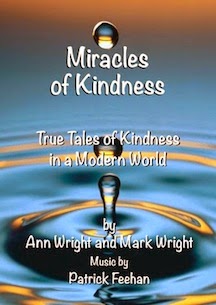One of the more obvious challenges a writer faces is how to
fill a book. Ask any novelist and they will likely tell you that the second
half of a novel is easier to write because the characters and plot are already
well established, and part two is often largely about resolving the consequences of part
one.
For those who pen shorter material, although there are
competitions and magazines out there eager for flash fiction or 2000 words on a
theme, putting together a collection of stories for publication can seem
onerous because short fiction can be a hard sell.
One solution is to create or contribute to an anthology,
showcasing the work of several writers. Books can be themed or stand as a
general celebration of the art of short fiction. (If you thought sculpture was
difficult, try sculpting a 250-word piece.) Anthologies are also a blessing for
those writers who are uncomfortable in the spotlight – there may be more of
those than you think!
- You
have more chance of filling a book.
- Individual
writers can focus on a small number of contributions.
- You
automatically start off with a group of people keen to spread the word.
- Those
same people (unless they all live on the same street) are likely to have
separate communities, increasing the potential for word-of-mouth
recommendations.
- Every
author is likely to buy at least one copy* so that ought to get the ball
rolling.
The challenges of a multi-writer anthology
- There
may be differences of opinion in the editing process, unless you have clear
ground rules or an editor-in-chief.
- Some
contributors may not want or be able to get involved in the marketing of the
book.
- There
has to be a running order, preferably one that’s carefully balanced.
- Erm…the
money.
Anthologies can be funded in several ways. Costs can be
shared among the contributors (in which case it might be wise to agree a set
word count for each story). Grants may be available, especially if it’s a
thematic anthology or raises funds for a particular cause – the Arts Council is
a good place to start in the UK. There’s still the faint possibility of
anthologies being funded by publishers in what used to be called the traditional way with contributors
receiving royalties from sales. There’s also the buy-out option where writers
are paid a one-off fee to use their material in perpetuity.
If you’re funding the book yourself / yourselves, costs can
be reduced by publishing as an ebook (if you have the time and the know-how,
your only expense will be the cover design), or by producing a Print-on-Demand
version.
I’ve been fortunate to contribute to four anthologies.
Beyond the Horizon is a general fiction anthology published
by Bamboccioni Books. I contributed a sci-fi tale, in the spirit of
Asimov, Rogue, about what it means to really live.
The Coffee Shop Chronicles Vol 1 (Oh the Places I Have Bean)
is a themed anthology about coffee from A Word with You Press. It contains a
mixture of anecdotes, poetry and fiction celebrating the much-loved** caffeine
creation. I was one of four editors and my fiction contribution is
Diner, a short tale about relationships, lies and self-deceit.
Kissing Frankenstein in a general fiction anthology
published by Flash-Fiction South West. I contributed some really short pieces (some only
six words long) and my main piece, Between the Lines, was a story about taking
chances.
Miracles of Kindness is a themed anthology contains
anecdotes about…well…kindness. My contribution, The Street Angel, is about the
folly of first impressions when I found myself stranded in Chicago late one
night.
My plan, later this year, is to put together an ebook
anthology of my own work. Entitled Into
the Void and sporting a stylish cover design supplied by www.goonwrite.com, it will
feature a mixture of favourite pieces, new material and experimental work.
* Not always though. I know of an anthology where the
contributors received a small buy-out fee and a significant proportion of
writers never bought a copy.
** Although, ironically, not by me.









